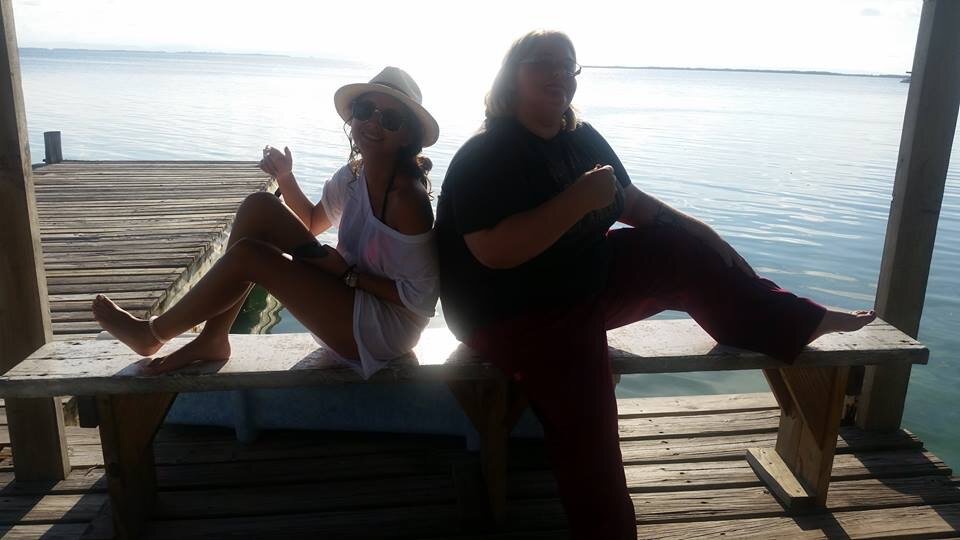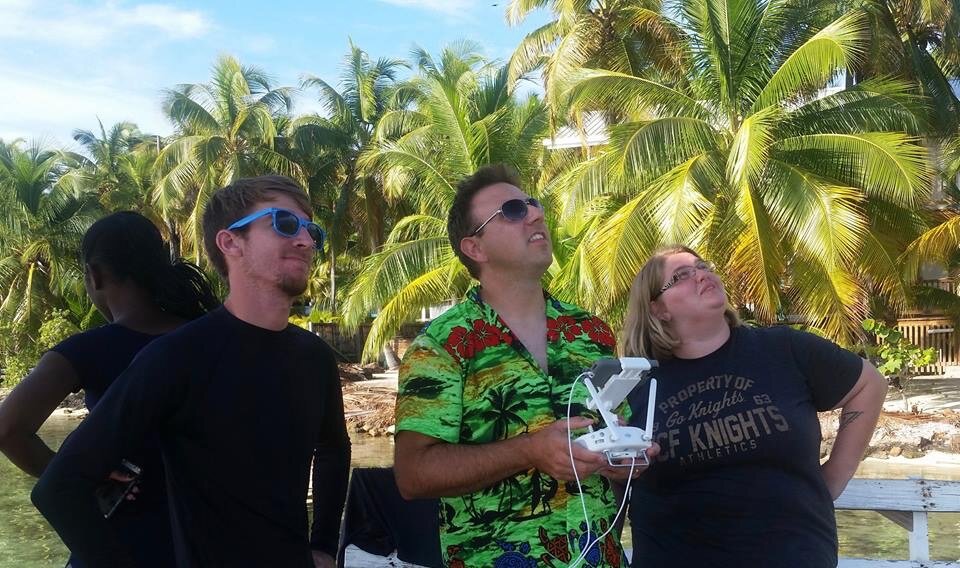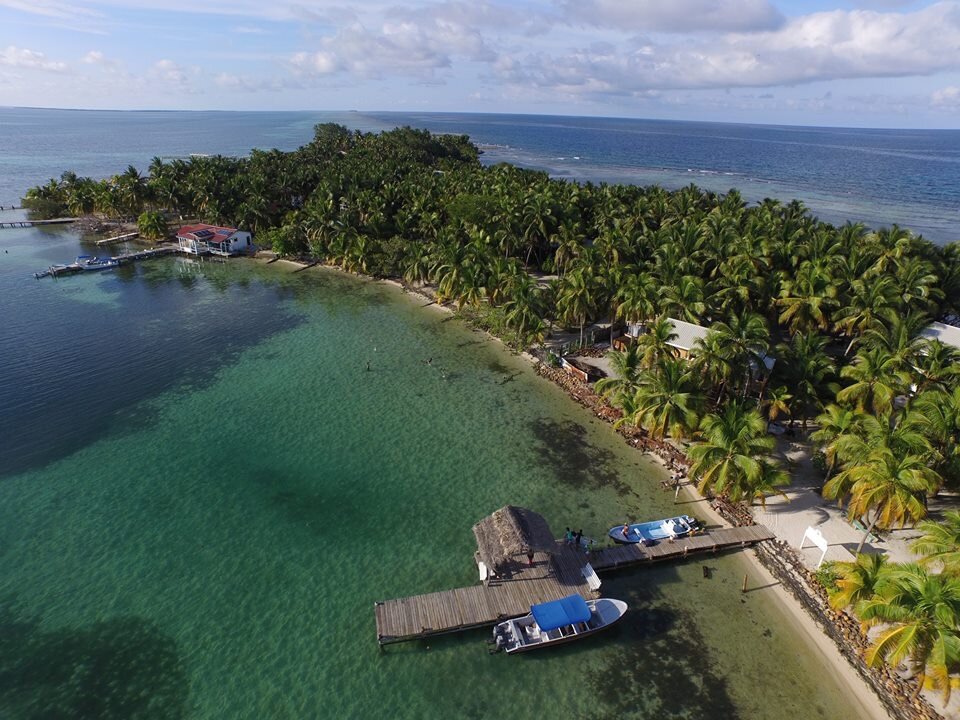To Boldly Go....student reflections from by Rhena South, UCF Sociology MA Student
To Boldly Go... A Blog post by Rhena South, University of Central Florida Sociology M.A. Student“I have come to accept the feeling of not knowing where I am going. And I have trained myself to love it. Because it is only when we are suspended in mid-air with no landing in sight, that we force our wings to unravel and alas begin our flight. And as we fly, we still may not know where we are going to. But the miracle is in the unfolding of the wings. You may not know where you're going, but you know that so long as you spread your wings, the winds will carry you.” ― C. JoyBell C. #ucf #ucfstudyabroad #citizensciencegis #maptastic #hawthorne University of Central Florida Geographic Information Systems InitiativeThe below is written by Rhena South--Have you ever reached a moment in your life where you question who you are or why you do what you do? Have you ever wondered if you dotted all the i’s and crossed all the t’s? If you will have a legacy to leave behind? For me, it wasn’t until I was 19 years old and about to start my Master’s program at the University of Central Florida that I began to question myself. At the beginning of the Fall 2015 semester, I was asked to work as a graduate teaching assistant for Dr. Hawthorne to aid him in teaching geographic information systems. I knew absolutely nothing about geography except a few things I learned in a physical geography class four years prior. Needless to say, I was terrified of assisting with a subject which I knew absolutely nothing about (as I am criminologist by training). I met with Dr. Hawthorne and heard six words which would change my life forever: “drones, Belize and solving real life problems.” Nearly a year later, and I find myself sitting on a dock on the island of South Water Caye, Belize with the sea breeze in my hair alongside nine other students under Dr. Hawthorne’s leadership. Alexis Yohros (left) and Rhena South (right)Earlier this morning, Nick, one of the other students, and myself were tasked with fixing our drone (technically, it is a quadcopter) so that we could fly it on the island. The small unmanned aircraft wouldn’t stop beeping and refused to fly. It turns out that there is a very specific way that firmware updates are supposed to be done; however, this pattern was unknown to both myself and the other student. We spent two and a half hours googling potential solutions, downloading firmware, and power cycling the drone and controller. Alongside Dr. Hawthorne, Nick and I ventured to a clear area to complete a test flight. We connected the iPhone to the controller, turned on the drone, danced the necessary “Locate GPS Signal Dance” (you have to hold the drone vertically and horizontally and spin in a circle) and armed the motors. We watched in awe (and to be honest, with a bit of pride) as the small aircraft took its second voyage.
Alexis Yohros (left) and Rhena South (right)Earlier this morning, Nick, one of the other students, and myself were tasked with fixing our drone (technically, it is a quadcopter) so that we could fly it on the island. The small unmanned aircraft wouldn’t stop beeping and refused to fly. It turns out that there is a very specific way that firmware updates are supposed to be done; however, this pattern was unknown to both myself and the other student. We spent two and a half hours googling potential solutions, downloading firmware, and power cycling the drone and controller. Alongside Dr. Hawthorne, Nick and I ventured to a clear area to complete a test flight. We connected the iPhone to the controller, turned on the drone, danced the necessary “Locate GPS Signal Dance” (you have to hold the drone vertically and horizontally and spin in a circle) and armed the motors. We watched in awe (and to be honest, with a bit of pride) as the small aircraft took its second voyage. Nick Altizer (left), Dr. Tim Hawthorne (middle), Rhena South (right)We spent the next 45-50 minutes flying the aircraft around taking video and photos of the island, sunset, and coastline. Here is an aerial photo of the beautiful island we are staying on:
Nick Altizer (left), Dr. Tim Hawthorne (middle), Rhena South (right)We spent the next 45-50 minutes flying the aircraft around taking video and photos of the island, sunset, and coastline. Here is an aerial photo of the beautiful island we are staying on: Much like our drone, all of us humans have an unwritten rule set that we need to follow (e.g., the American Dream, high school, college) to be “successful” in life (keep in mind, that one rule set for one person might not be the same for others). However, sometimes we may not do it in the right order, complete it, or even begin the task. For myself, I completed college before high school and started a Master’s program when most people my age are in their 2nd/3rd year of an undergraduate program. In doing so, I lost sight of why I wanted to go to college and study social science.Much like the fictional Captain Kirk in Star Trek, I love a challenge. For Kirk, it was the Kobayashi Maru… For myself, it is Belize. The goal of the Kobayashi Maru is to face fear in the presence of absolute death and make the decision necessary to save your crew. In other words, it is a personality test. Only students who were unselfish, humble, and unafraid were allowed to continue on to become a part of Command. Similarly (minus the near-death experiences), Dr. Hawthorne’s challenge for us is to explore our identities as researchers and individuals as well as our positionality. I applied for my passport, dotted my i’s and crossed my t’s, said goodbye to Orlando and headed out to Belize. Our first day of field work, I got heat sickness and thought I was going to pass out. We were about a 15 minute walk away from Ocean Academy but it felt like miles away to me. I had to trust in the people around me that I would make it back okay. This experience set off a chain of events which were greater learning moments than anything I could ever have learned from a classroom. Belize is 40% hard work, 30% communication, 20% sweat and 10% technology. Under Dr. Hawthorne’s leadership, these are the voyages of the Belize Study Abroad. Its five-year mission: to explore strange new worlds, to seek out new experiences and propose solutions, to boldly go where no study abroad has gone before.
Much like our drone, all of us humans have an unwritten rule set that we need to follow (e.g., the American Dream, high school, college) to be “successful” in life (keep in mind, that one rule set for one person might not be the same for others). However, sometimes we may not do it in the right order, complete it, or even begin the task. For myself, I completed college before high school and started a Master’s program when most people my age are in their 2nd/3rd year of an undergraduate program. In doing so, I lost sight of why I wanted to go to college and study social science.Much like the fictional Captain Kirk in Star Trek, I love a challenge. For Kirk, it was the Kobayashi Maru… For myself, it is Belize. The goal of the Kobayashi Maru is to face fear in the presence of absolute death and make the decision necessary to save your crew. In other words, it is a personality test. Only students who were unselfish, humble, and unafraid were allowed to continue on to become a part of Command. Similarly (minus the near-death experiences), Dr. Hawthorne’s challenge for us is to explore our identities as researchers and individuals as well as our positionality. I applied for my passport, dotted my i’s and crossed my t’s, said goodbye to Orlando and headed out to Belize. Our first day of field work, I got heat sickness and thought I was going to pass out. We were about a 15 minute walk away from Ocean Academy but it felt like miles away to me. I had to trust in the people around me that I would make it back okay. This experience set off a chain of events which were greater learning moments than anything I could ever have learned from a classroom. Belize is 40% hard work, 30% communication, 20% sweat and 10% technology. Under Dr. Hawthorne’s leadership, these are the voyages of the Belize Study Abroad. Its five-year mission: to explore strange new worlds, to seek out new experiences and propose solutions, to boldly go where no study abroad has gone before.

